Brown Swiss Cattle Breed
Brown Swiss cattle are one of the oldest and most respected dairy breeds in the world. Originating from the Swiss Alps, they are valued for their strength, adaptability, and gentle nature. Their milk is rich in both protein and butterfat, making it ideal for cheese production. With impressive longevity and consistent performance, Brown Swiss remain a global symbol of dairy excellence.
Brief History
The Brown Swiss is one of the oldest and most respected dairy cattle breeds in the world. Originating in the Swiss Alps more than a thousand years ago, the breed was carefully developed for both milk production and hardiness in rugged mountain environments. By the 19th century, Brown Swiss cattle were exported to the United States and other countries, quickly becoming a foundation for modern dairy farming. Today, they are known globally for their adaptability, longevity, and outstanding milk quality.
Physical Traits
-
Color: Light brown to gray, often with a creamy muzzle and dark nose.
-
Size: Larger than many other dairy breeds.
-
Cows average 600–700 kg (1,300–1,500 lbs).
-
Bulls weigh 1,000–1,200 kg (2,200–2,600 lbs).
-
-
Appearance: Strong frame, large bone structure, and well-balanced udders.
-
Temperament: Gentle and calm, which makes them easier to manage in both intensive and pasture-based systems.
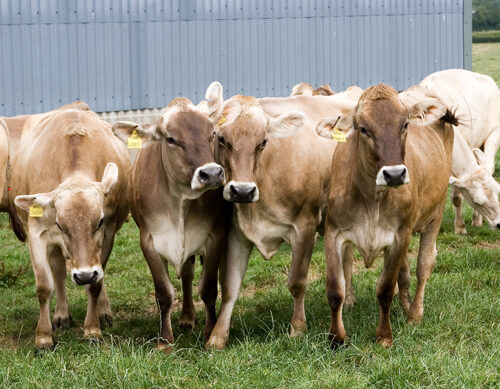
Milk Production and Quality
-
High Volume: Brown Swiss cows yield on average 9,000–12,000 liters (2,300–3,200 gallons) of milk per year, depending on feeding and management.
-
Protein-to-Fat Balance: Milk contains around 4% butterfat and 3.5–4% protein, an excellent ratio for cheesemaking.
-
Cheese Reputation: Their milk is especially prized for Swiss-style cheeses such as Emmental and Gruyère, thanks to ideal casein content.
-
Longevity in Production: Brown Swiss cows often remain productive for 10 years or more, longer than many dairy breeds.
Hardiness and Adaptability
Brown Swiss cattle are extremely resilient. Originating from high altitudes, they developed strong hooves and excellent leg strength, which allows them to graze on rough terrain. They adapt well to hot, humid regions as well, making them a truly global dairy breed.
Reproductive and Maternal Traits
-
Fertility: Reliable conception rates with fewer reproductive problems compared to some high-yielding dairy breeds.
-
Calving Ease: Generally smooth calving, with calf birth weights averaging 38–45 kg (84–100 lbs).
-
Maternal Ability: Cows are protective mothers and provide abundant milk for calf growth.
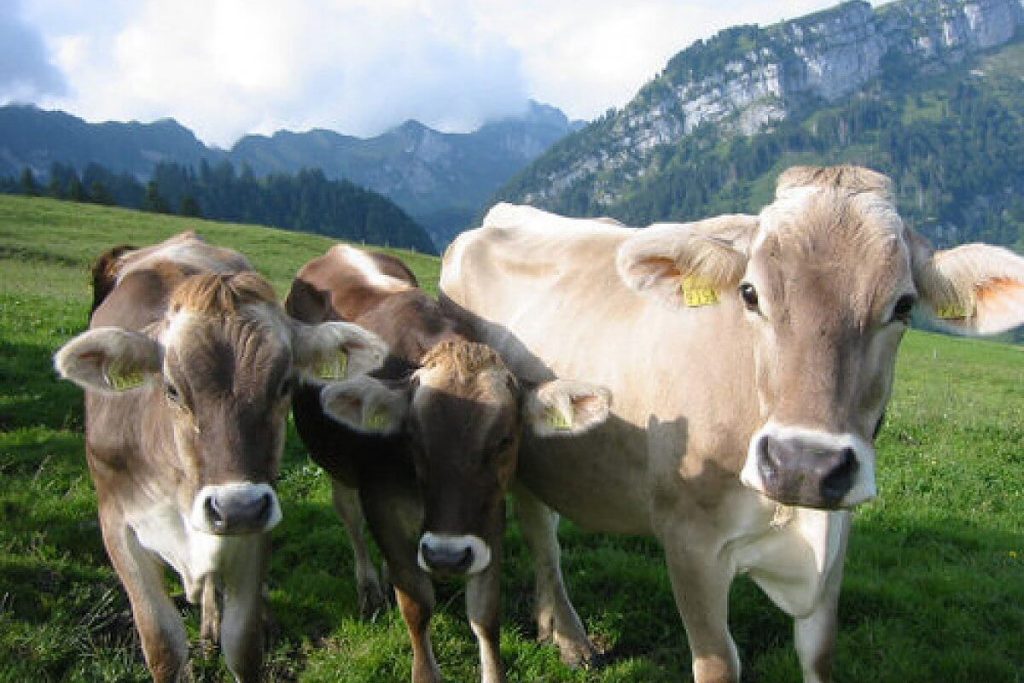
Advantages
-
Dual Strength: Exceptional for dairy, yet also provide respectable carcass value after milking careers.
-
Durability: Longer lifespan and productive years compared to Holstein and other high-yield breeds.
-
Adaptability: Perform well in both intensive systems and pasture-based farms.
-
Cheese-Making Milk: Protein-rich milk makes Brown Swiss a favorite for artisanal and industrial cheesemakers.
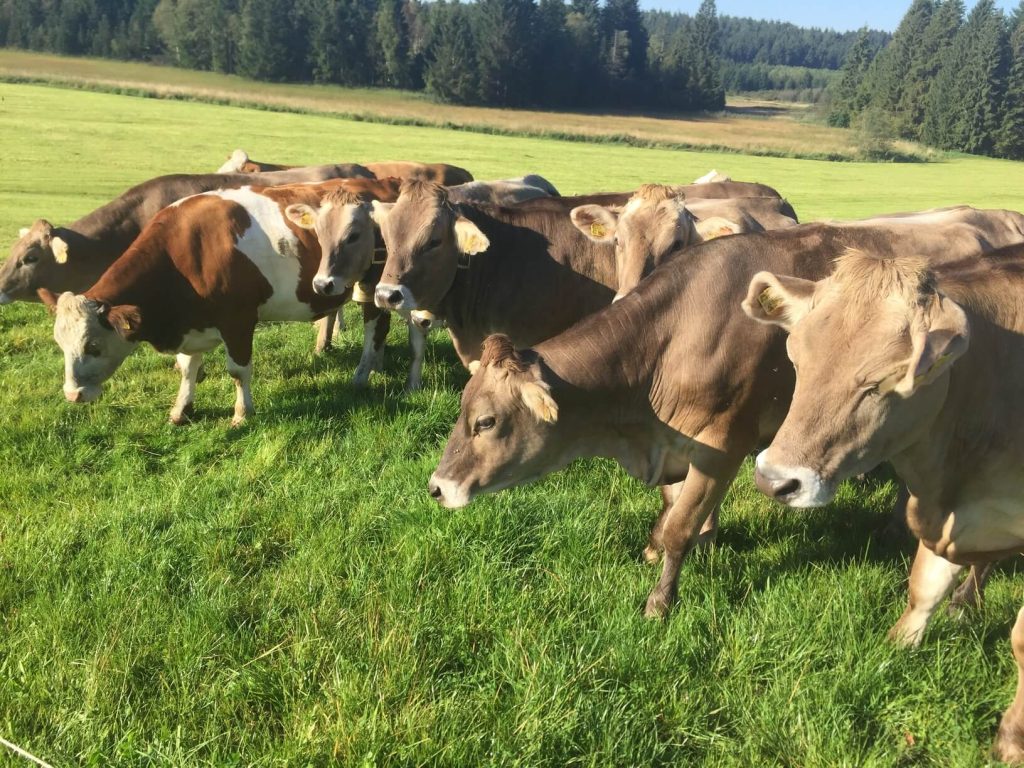
Quick Facts
-
🐄 Origin: Switzerland
-
⚖️ Cow Weight: 600–700 kg
-
⚖️ Bull Weight: 1,000–1,200 kg
-
🍼 Average Milk Yield: 9,000–12,000 liters/year
-
🧀 Milk Composition: 4% fat, 3.5–4% protein
-
👶 Calf Birth Weight: 38–45 kg
-
🌎 Global Presence: U.S., Brazil, Italy, Germany, and over 60 other countries
-
✅ Traits: Long-lived, strong hooves, calm temperament, ideal for cheese
Brown Swiss in the Global Dairy Market
With their excellent milk composition, Brown Swiss cattle have become essential in countries renowned for cheesemaking. Their milk is valued for yield and processing quality, giving dairy farmers access to premium markets.
Comparison with Other Dairy Breeds
While Holsteins dominate in raw milk volume, Brown Swiss offers a balance of volume, quality, and durability. Farmers often prefer Brown Swiss for herds where longevity and cheese production are priorities.
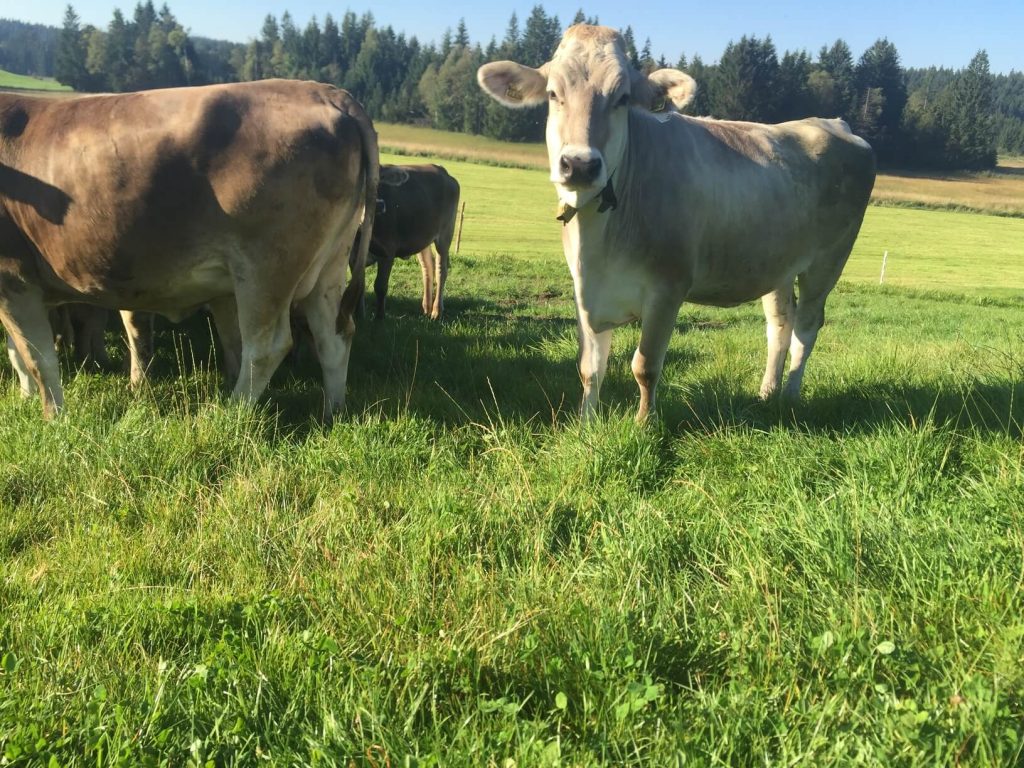
Sustainability and Efficiency
Because they remain productive for many years, Brown Swiss cattle reduce the need for frequent herd replacements, supporting both economic and environmental sustainability.
The Brown Swiss breed represents the perfect balance between productivity, quality, and resilience. With their rich milk ideal for cheesemaking, calm disposition, and adaptability to diverse climates, Brown Swiss cattle continue to play a vital role in global dairy farming.

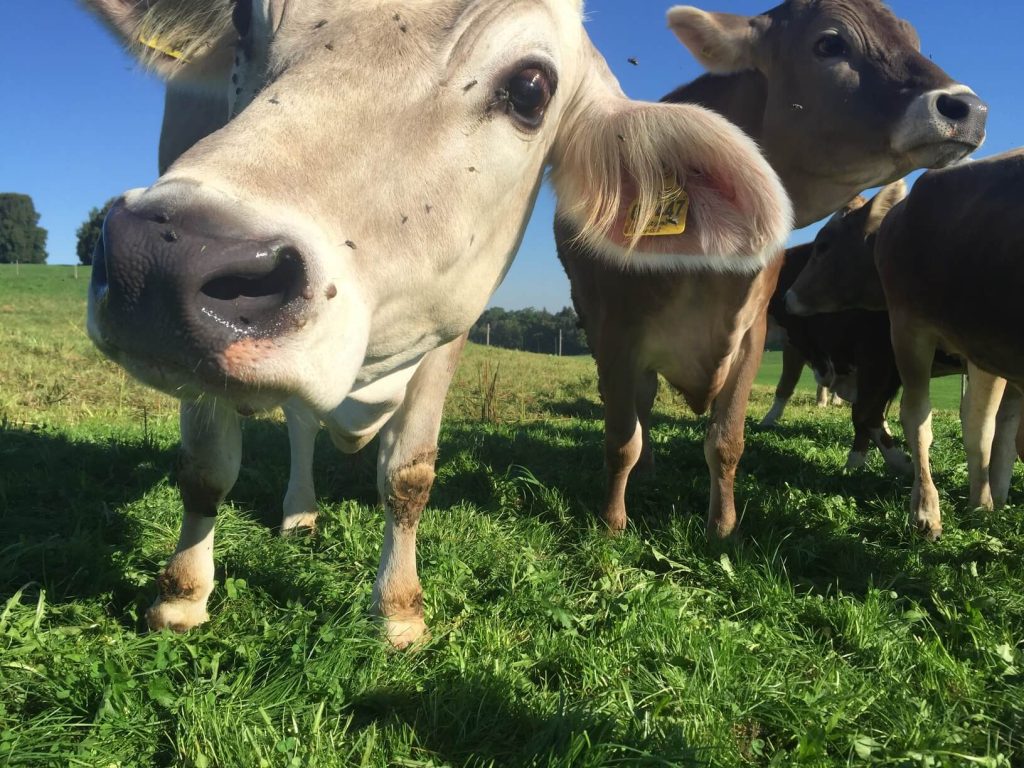

Customer Reviews
Showing 0 reviews
Thanks for submitting your comment!